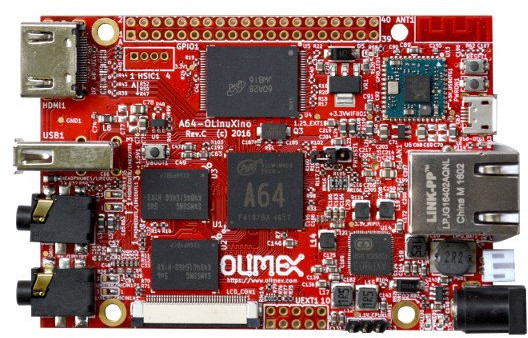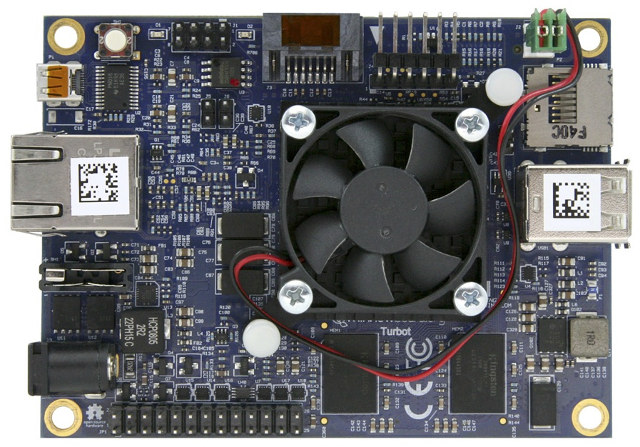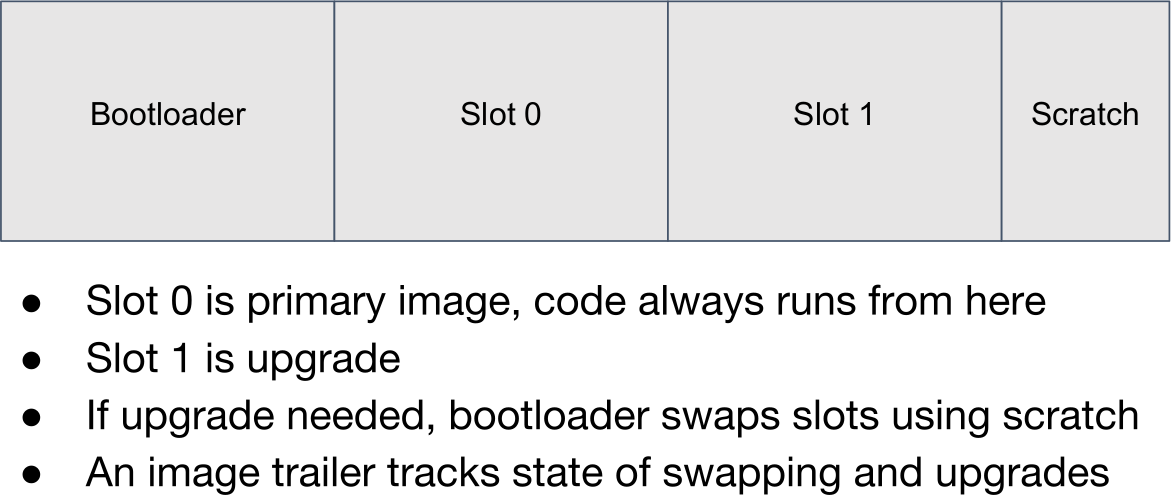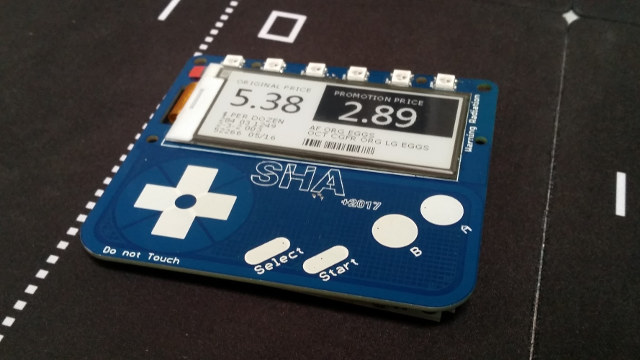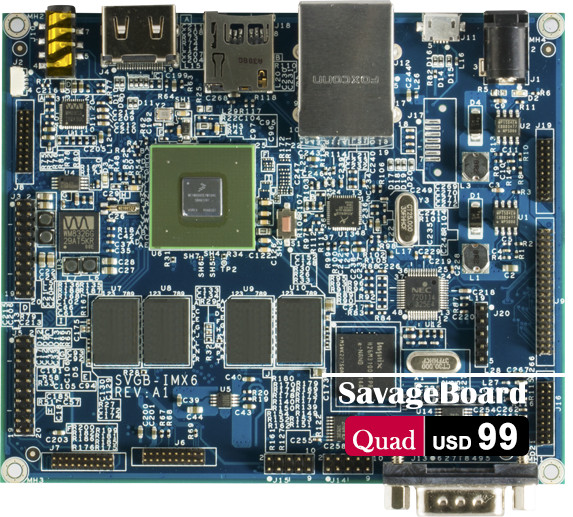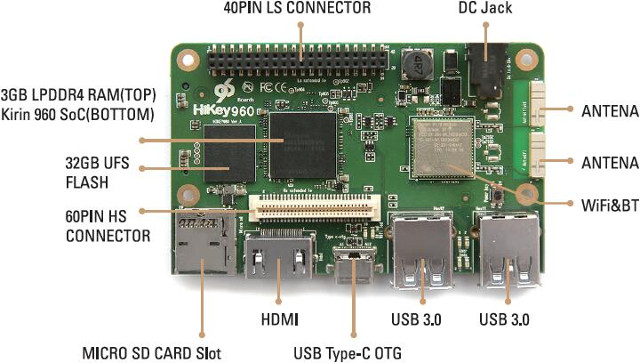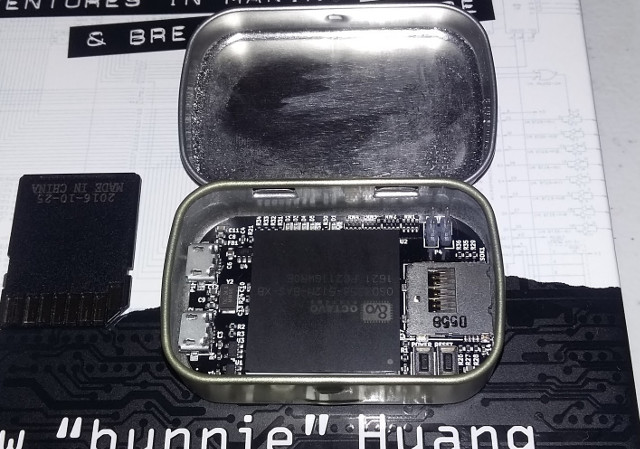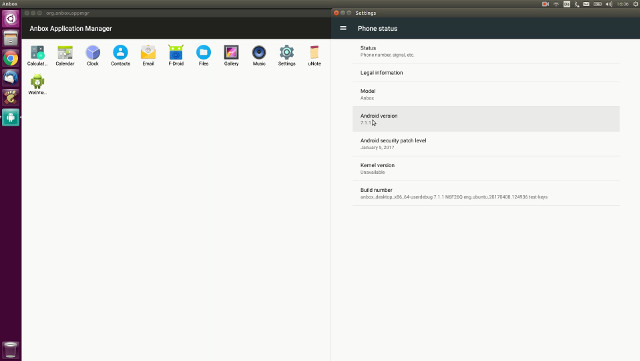Several boards based on Allwinner A64 quad core 64-bit ARM processor have been available on the market for a while, with products such as Pine A64(+), NanoPi A64, or Banana Pi BPI-M64. Olimex also has been working on A64-OLinuXino since late 2015, and the company has now formally launched the board for 50 Euros, which also happens to be the very first open source hardware board based on Allwinner A64. A64-OLinuXino Rev. C board specifications: SoC – Allwinner A64 quad core Cortex-A53 processor with Mali-400MP2 GPU System Memory – 1 or 2GB DDR3L @ 672 MHz Storage – micro SD slot, Optional 4 or 16GB industrial grade eMMC flash, optional SPI Flash Video Output & Display I/F – HDMI, 20-pin MIPI & 40-pin LCD display connectors Audio – Via HDMI, 3.5mm Audio In and Out jacks (Headphone output and microphone input can be changed to Line-in and Line-out via jumpers) […]
MinnowBoard Turbot Quad Core Open Source Hardware Board is now Shipping for $190
MinnowBoard Turbot Quad Core board was announced last autumn, with shipping expected in December 2016, but there may have been delays as the MinnowBoard foundation has just announced that the Intel open source hardware board is now shipping. MinnowBoard Turbot Quad “MBT-4220” board specifications: SoC – Intel Atom E3845 quad core Bay Trail-I processor @ up to 1.92 GHz with Intel HD graphics @ 542 / 792 MHz (10W TDP) System Memory – 2GB DDR3L 1067 MT/s (Soldered) Storage – 1x SATA2 3Gbps, 1x micro SD card slot, 8 MB SPI Flash for firmware (Tianocore UEFI, Coreboot, SeaBIOS) Video & Audio Output – 1x micro HDMI connector Connectivity – 10/100/1000M Ethernet RJ-45 connector (with Intel i211 instead of Realtek NIC on dual core MinnowBoard) USB – 1x USB 3.0 host, 1x USB 2.0 host Debugging – Serial debug header Expansion headers Low-speed expansion (LSE) port – 2×13 (26-pin) male 0.1″ […]
MCUBoot is an Open Source Secure Bootloader for IoT / MCUs
Bootloaders takes care of the initial boot sequence on the hardware before the operating system takes over. For example, U-boot is often used in embedded systems as the bootloader before starting the main operating systems such as Linux or FreeBSD. MCUBoot is also a bootloader, but it targets the IoT, here referring to MCU based systems with limited memory and storage capacity, and is born out of work on Apache Mynewt OS, when developers decided to develop the bootloader separately from the operating system. MCUBoot is designed to run on small & low cost systems running on MCU with ~512 KB flash, ~256 KB RAM, and currently supports Zephyr OS and Mynewt, with support for other RTOS also considered. Due to constraint the bootloader uses minimal features with a flash driver, a single thread, and crypto services. The project also aims at solving security and field firmware updates. To address the […]
SHA2017 Conference Badge To Feature ESP32 SoC, e-Paper Display
In most conference, you’ll wear a badge showing your name, job description and company, but with the price of electronics going down, it may be time for a conference badge upgrade. SHA2017 is a non-profit outdoor hacker camp taking place in The Netherlands in 2017 on August 4 – 8, and the organizers are planning to use a special badge comprised of Espressif ESP32 processor, and an e-Paper Display. SHA2017 Badge specifications: Wireless Module – Espressif ESP32 based ESP-WROOM-32 module with WiFi and Bluetooth Display – 2.9″ e-paper display (296×128) Storage – micro SD slot Expansion – 12-pin expansion header with GPIOs, I2C, 3.3V, GND Debugging – micro USB port + USB->TTL chip for programming Misc – Direction keys, select, start, A and B buttons for input; 6x RGB, LEDs; pager motor for notifications Battery – Battery sized to last at least a day Beside your name and company details, […]
SavageBoard Open Source Hardware Board Powered by NXP i.MX 6 Processor Offers Multiple Display Options
While it’s hard to keep track of all NXP i.MX6 boards and modules on the market, few can claim to be open source hardware, with the exception of OpenRex, and now SavageBoard, which I just found in Linux 4.11 release log. The board comes in three variants with Solo, Dual, and Quad versions, is equipped with 4 to 8GB flash, 512MB to 1GB RAM, HDMI, TFT LCD, MIPI DSI, and LVDS ports, Ethernet, SATA (Quad only), lots of I/O headers, and more. SavageBoard Solo/Dual/Quad specifications: SoC Solo – NXP i.MX 6Solo Cortex A9 processor @ 1.0 GHz with Vivante GC880 3D GPU Dual – NXP i.MX 6Dual dual core Cortex A9 processor @ 1.0 GHz with Vivante GC880 3D GPU Quad – NXP i.MX 6Quad quad core Cortex A9 processor @ 1.0 GHz with Vivante GC2000 3D GPU System Memory Solo – 512 MB 32-bit DDR3 @ 400 MHz Dual […]
96Boards Compliant HiKey 960 ARM Cortex A73 Development Board is Now Available for $239
The most powerful 96boards development board – HiKey 960 – has finally been launched, and can be purchased for $239 on Aliexpress, Amazon US, Switch Sense (Japan), Seeed Studio, or All Net (Germany). HiKey 960 specifications have not changed much since we found out about the board: SoC – Kirin 960 octa-core big.LITTLE processor with 4x ARM Cortex A73 cores @ up to 2.4 GHz, 4x Cortex A53 cores @ up to 1.8 GHz, and a Mali-G71 MP8 GPU System Memory – 3GB LPDDR4 SDRAM (PoP) Storage – 32GB UFS 2.1 flash storage + micro SD card slot Video Output / Display Interface – 1 x HDMI 1.2a up to 1080p, 1x 4-lane MIPI DSI connector Connectivity – Dual band 802.11 b/g/n/ac WiFi and Bluetooth 4.1 with on-board antennas USB – 2x USB 3.0 type A host ports, 1x USB 2.0 type C OTG port Camera – 1x 4-lane MIPI […]
PocketBone Board Based on Octavo Systems OSD3358 SiP Fits into an “Altoids Smalls” Mint Tin Box
Last year, Octavo Systems introduced OSD3358 System-in-Package (SiP) that includes Texas Instruments Sitara AM3358 processor, 256MB to 1GB RAM, a PMIC and an LDO into a single package. Since then the SiP has been found in BeagleBone Black Wireless and BeagleBone Blue, and at the time of launch there was also some development around PocketBone, a tiny open source hardware Smalls mint tin sized board based on OSD3358, which is smaller than a CHIP board, but a little bigger than NanoPi NEO board. There’s now been some progress with prototypes of the board manufactured with the following specifications: SiP (System-in-Package) – Octavo Systems OSD3358 with TI Sitara AM3358 ARM Cortex-A8 processor @ up to 1 GHz, PowerVR SGX530 GPU, PMIC + LDO, and 512MB DDR3 Storage – micro SD slot USB – 2x micro USB port one for power, one OTG port Expansion – 10-pin header (unpopulated) with SPI, I2C, […]
Anbox Allows You to Run Android Apps Natively in Ubuntu Linux
It’s been possible to run Android app in computers for a while with solutions such as Bluestacks or ShashLik, as well as running Android-x86 ISO in a virtual machine. But all those solutions rely on emulation, may not have the best performance, and at the time I tried them did not really work well, or were inconvenient to use. Anbox is different as instead of running its own Linux kernel for Android, it leverages the Linux kernel in Ubuntu for better integration and performance, and use an LXC container to run Android. Anbox has been tested with Ubuntu 16.04, but should also work with other recent Ubuntu distributions. Installing Anbox (Alpha) is easy, and can be done with a single command line:
|
1 |
sudo snap install --classic anbox-installer && anbox-installer |
The command will modify your system with the following: Add the anbox-support ppa ppa:morphis/anbox-support to the host system Install the anbox-modules-dkms deb package from the ppa which will […]


